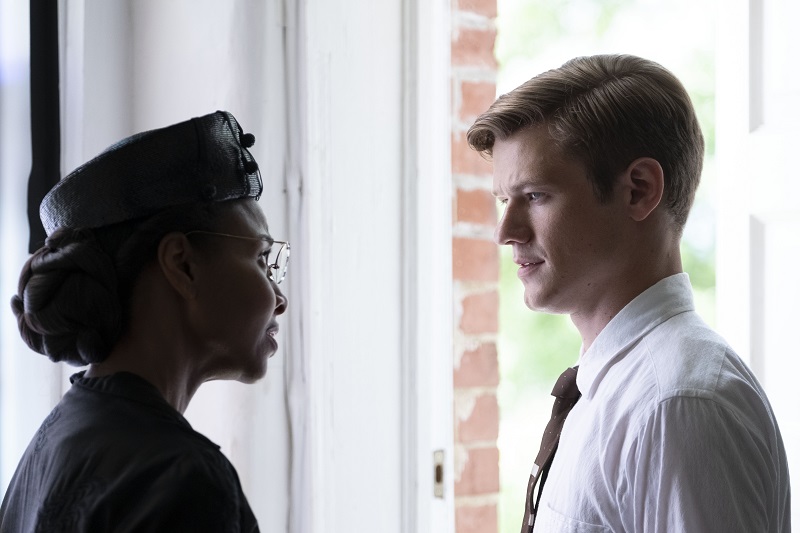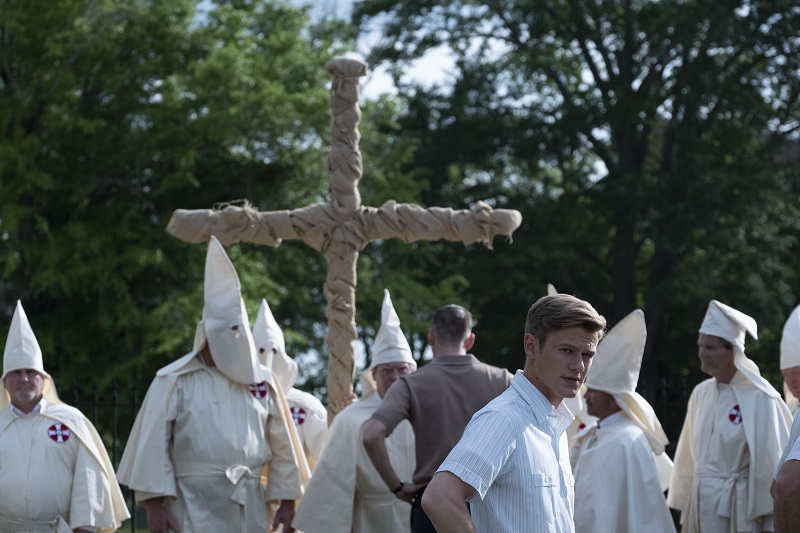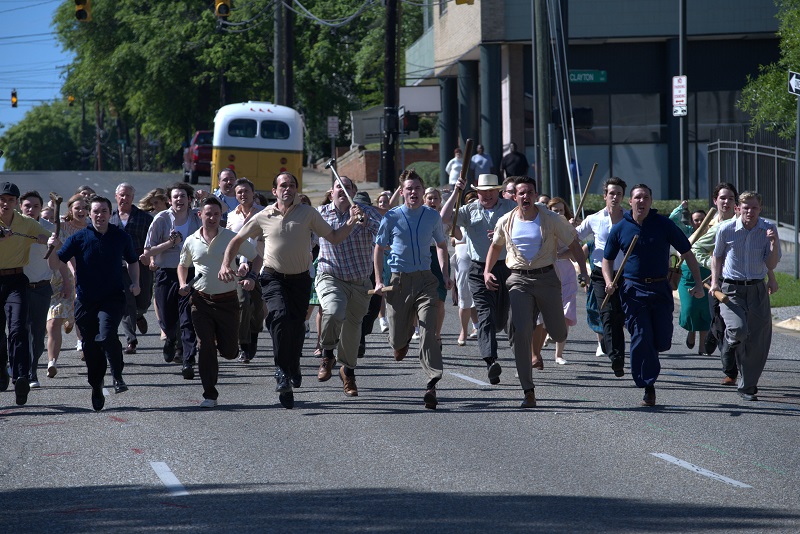The second that one hears that Son of the South is based on a true story that takes place in the early 60s and involves a twenty-something protagonist whose grandfather is a loud and proud member of the KKK, the ears are undoubtedly going to perk up.

Based on the autobiography by Bob Zellner, The Wrong Side of Murder Creek, Son of the South brings a lot of innate baggage to the landscape that involves this swath of history in Montgomery, Alabama during this era.
Director Barry Alexander Brown cut his cinematic teeth as an editor for Spike Lee (dating back to Do the Right Thing) and the BlacKkKlansman helmer serves as producer here in an endeavor that looks at many elements of the Civil Rights Movement from the point of view of a “New South” member whose identity questioning permeates the entire film.
Lucas Till is Zellner and the MacGyver revival star portrays him as someone having a full-on self-reckoning. It is a pretty stunning evolution from acceptance of what you’ve been told and taught to reality smacking you in the face in the form of a police officer’s baton stick. In the span of a single generation, the real change occurred at the Zellner household. Bob grew up in a house where his father James (Byron Herlong) had long ago split from his own father in terms of how to handle America’s scorching race relations issue.
In the hands of Till, there is an effective, albeit vanilla-bean flavored first-person account of one aspect of the Civil Rights Movement. Bob Zellner not only met Rosa Parks (as portrayed in the film by a sensational Sharonne Lanier) but was bestowed the blessing that is having one’s path cross hers on a multitude of occasions and causes. As the man who literally wears his father’s sins front-and-center, something striking happens over the course of Son of the South.
Simply showing up and taking onus for an incredibly personal attack on Civil Rights is one part of the process. It is what Zellner did with that opportunity and that platform that made his story special—and worthy of a 105-minute film journey.
Whether Son of the South works depends obsessively on Till, for sure, but there is a supporting ensemble behind and in front of the camera that is electric. There are countless moments where the film could have drifted into Hallmark or Lifetime move tone, which has its time and place, just not here. Instead, folks such as Julia Ormond (as real-life activist Virginia Durr) grab their time in the spotlight and command our attention every millisecond.

Also fantastic is Cedric the Entertainer as the Reverend Ralph Abernathy, a close personal friend of Martin Luther King, Jr, and a spectacular speaker. Lanier’s Parks is simultaneously approachable and seismic as she fills out the role grounded in a reality that is the tip of the awesome iceberg that is Barry Alexander Brown and his effort adapting Zellner’s autobiography.
Although not the kindest souls on the planet, actors and actresses must toss aside their own personal disgust with an individual’s beliefs when tackling some real-life characters. Lucy Hale’s (Fantasy Island) take on Bob’s girlfriend at-the-time Carol Anne is chillingly cold at her best and vindictively naïve at her worst—not an easy task for any thespian. Then, there is a recently departed legend that is Brian Dennehy. His grandfather almost makes your skin crawl… almost.
Paths are crossed with eventual U.S. Representative John Lewis (Dexter Darden). The thing is, after experiencing his documentary John Lewis: Good Trouble, nothing can compare to the real thing and director Brown wisely kept the spotlight on his more general role in the movement and its effect on those who didn’t specifically share the activists’ skin color.

It’s another moment that could have easily slid into a movie-of-the-week arena. Instead, the film took the time to present issues in one of two camps—the landing on the right side of history, and the other one.
Grade: B
Look for Son of the South in Select Theaters, as well as on VOD & digital on February 5.

